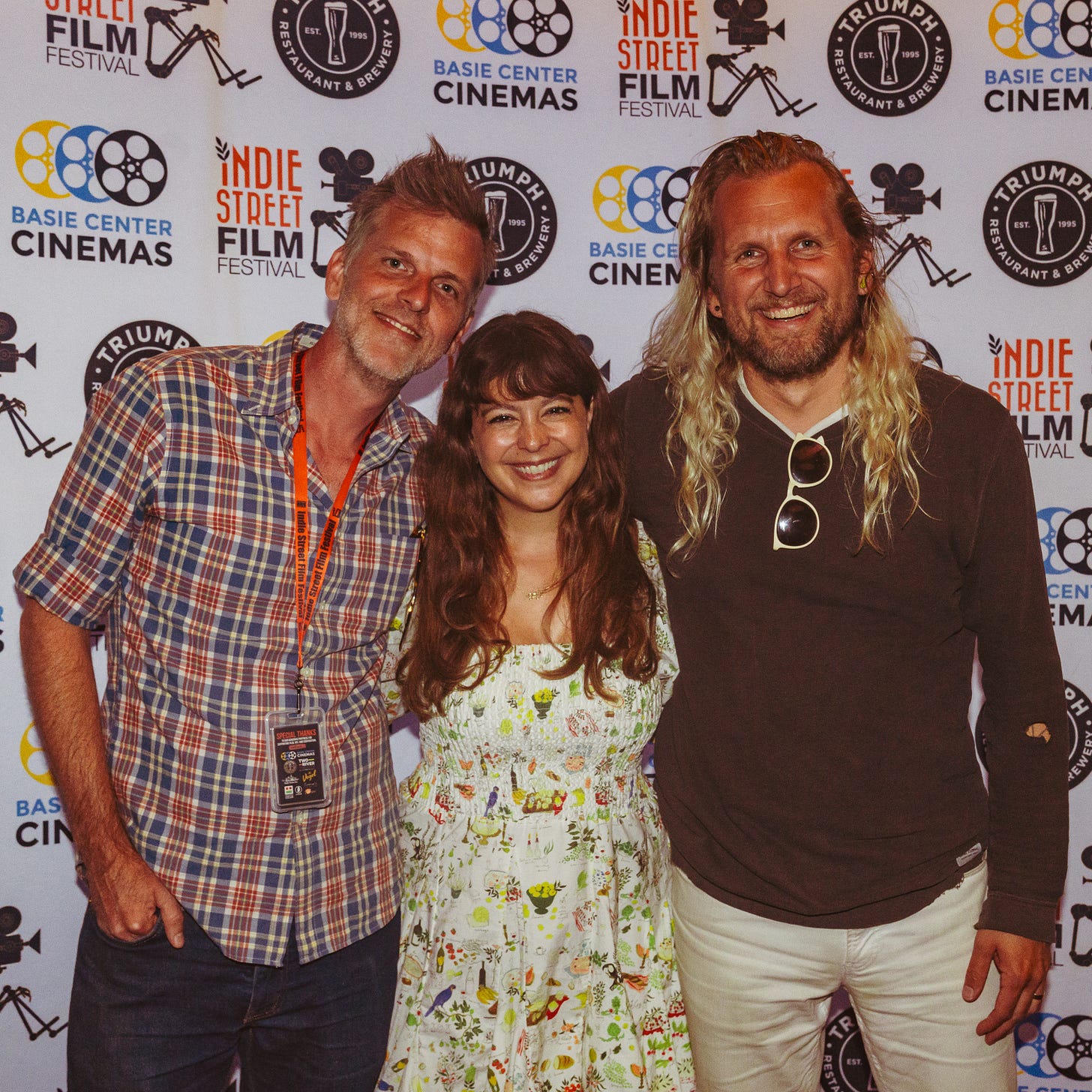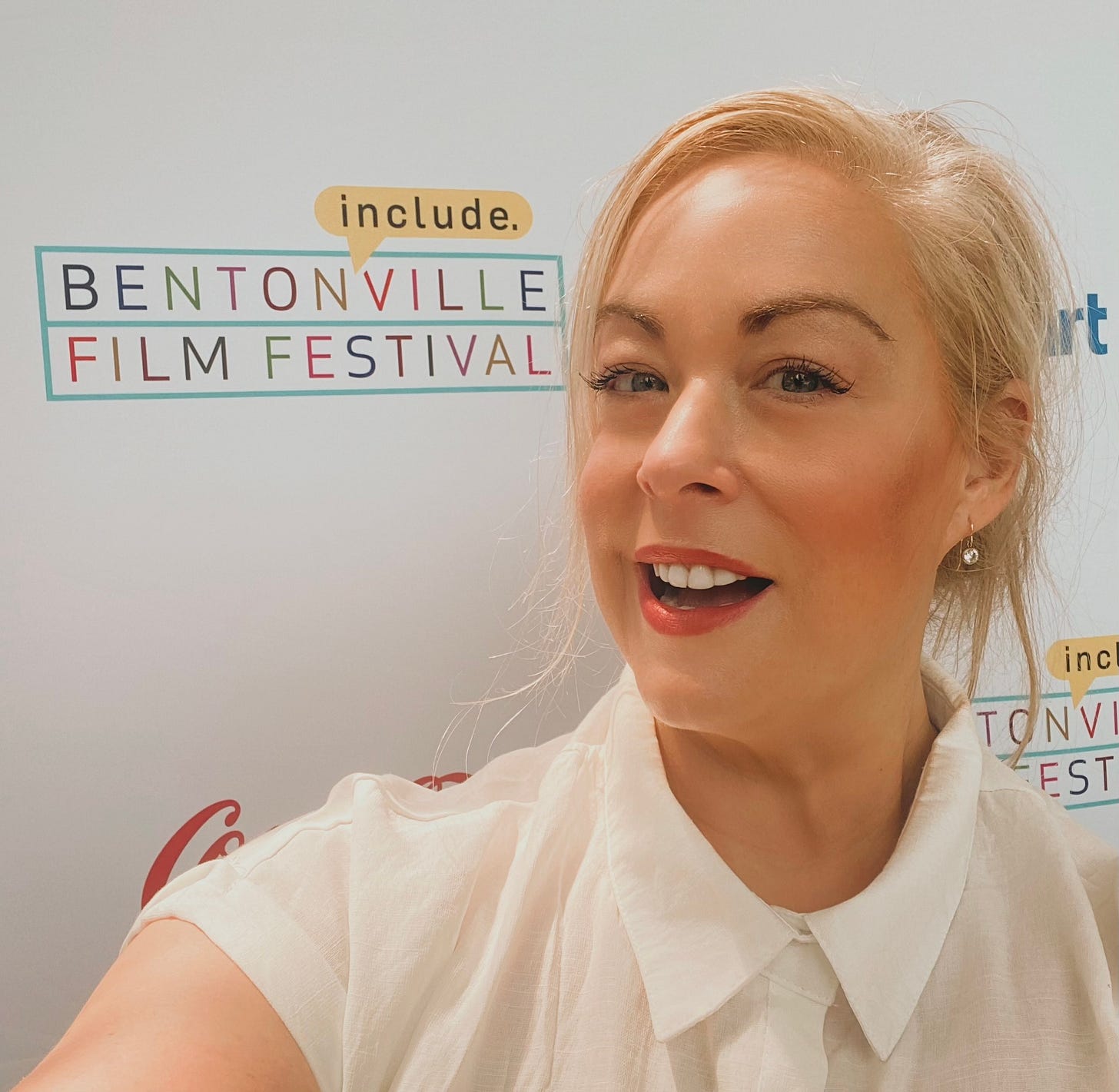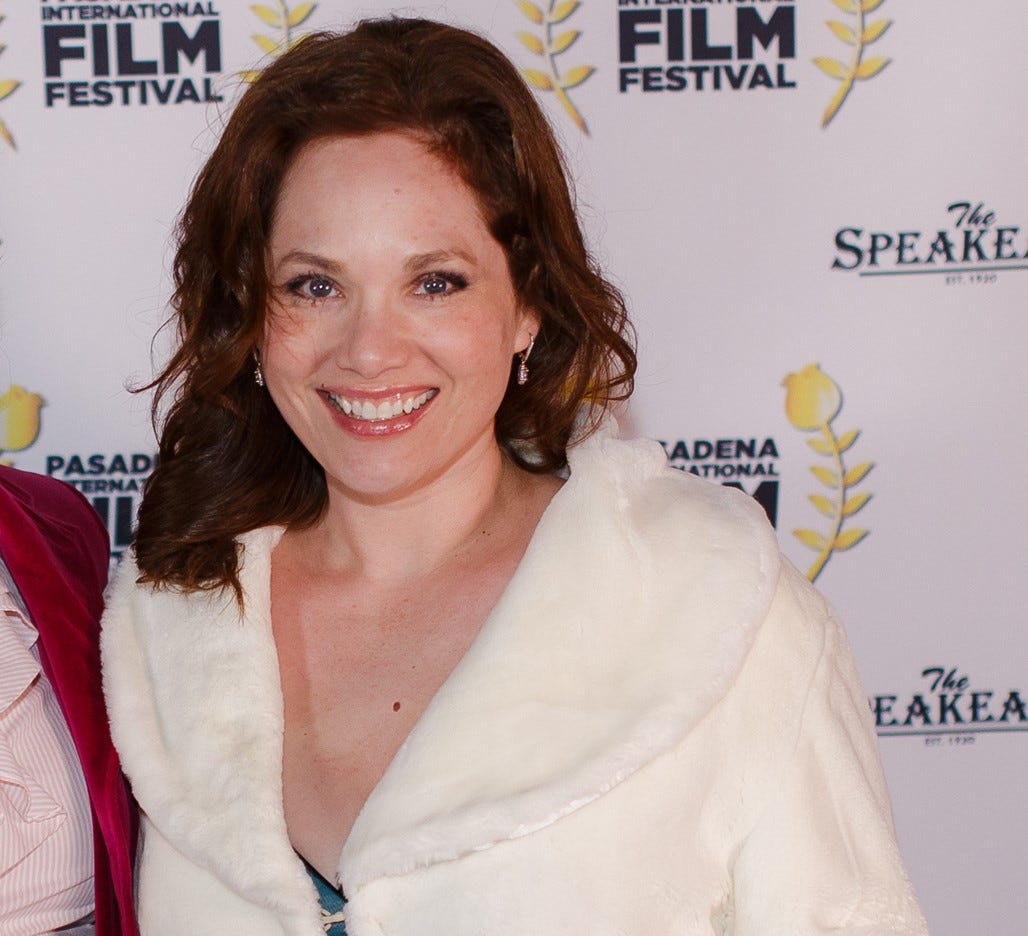


We’ve been speaking to filmmakers for the last few weeks about their films and trajectories and their tips for navigating festivals. But this week, we’re going to hear from a few of the programmers I met while attending their festivals, to hear what they have to say and learn more about how independent filmmakers can approach these things.
The festival landscape can be overwhelming. But your goal is to share your work and meet your people. Here’s what programmers have to say about the culture of their festivals and how filmmakers can get the most of the experience.
BB: What's unique to your festival?
Drea Clark, Bentonville Film Festival: BFF is specifically committed to championing underrepresented voices, both in front of and behind the camera, to present films that showcase a world that more closely resembles the world we actually live in. Storytellers from marginalized communities are encouraged to submit and know that their perspectives are welcome and sought out at BFF. We hope to honor the insights that come from creating stories that are often more personally driven, and really help build out a community of these like minded artists so they can support and be inspired by each other.
Allyson Morgan, Indie Street Film Festival, New York Indie Theater Film Festival: NYITFF is the only film festival in New York built for theatre artists branching into film. We often give many filmmakers their first festival premiere!
Tim Anderson, Florida Film Festival: What I think makes FFF different but maybe not wholly unique is that we are very low-key about interaction with filmmakers, famous people. If you come to Florida, we are here to make sure you have a great time. We know how good the programing is, we suffer to put the best projects out there to both our audiences and the guest filmmakers. We want you to say the programming at FFF was the best you saw at any festival, but tons of festivals have great programming and passionate programmers. What we strive for is for you to say your overall experience was the best one and we try to do that by making you feel like playing FFF is like coming home.

Marc Longbrake, Omaha Film Festival: There are over 12,000 festivals listed on FilmFreeway (ack!). To say that "we care" is cliche, to say that filmmakers and artists are important to us is…cliche. All true but how much does that resonate to someone just hearing that without experiencing it…. One thing that's somewhat unique is our OFF Academy, a two-day interactive learning experience for local high school students. A behind-the-scenes look at screenwriting, cinematography, lighting, editing, etc., where the students can work side-by-side with industry professionals actually creating a scene with professional actors. One exciting part of that is our lunch-and-learn that happens on the second day. Many of our visiting filmmakers and screenwriters are invited to attend and sit with students during the lunch break so they can ask questions and talk about all things filmmaking from those who are out there doing it. We always knew there was a significant/exciting impact that would be felt from the student's perspective, but we hear every year from the filmmakers that participate that they are also affected by the experience.
We're also thirteen years into our Writers Theatre which puts our screenplay finalists on stage with selections read (and performed) by local actors for an audience. Q&As and discussions follow the performance, giving the audience a chance to hear more about the screenplays and the writers, and giving the writers a chance for live feedback from a welcoming audience.
Our festival is home-grown, by three filmmakers who truly care about the artists and understand what it takes to create a film. We hope that passion translates to our programming and to how we treat our filmmakers. We know that without the films (obviously) we wouldn't have an event, so we want to treat all of our VIPs as…VIPs. We also recognize that filmmakers on an independent film festival circuit (most often) aren't JJ Abrams or Brad Pitt and don't come with the cache that the A-Listers bring, but from our perspective we view them in the same way, someone that's created something amazing enough for us to highlight in our programming and give of themselves enough to travel to Omaha, so we want to make sure that they're treated like the rock stars that they are.
Joanne Hudson, Ridgefield Independent Film Festival: We really like filmmakers! The only reason we are putting on this festival is because we want to hang out with filmmakers and we want filmmakers to hang out with each other in a beautiful, relaxing environment. We want to create a film culture and cultivate community. Additionally, starting with our tenth year, we have partnered with The Prospector Theater for all of our screenings and married our two missions to create an accessible film festival that seeks to make the world a more compassionate place through the sharing of stories through cinema. For the first time, we will be able to share RIFF films with the deaf and hard of hearing as well as low vision and blind persons.

Jessica Hardin, Pasadena International Film Festival: Our festival is unique in that we do not curate; meaning a lot of fests seek out films to take part in their fest. We only program films that have been submitted to us. We like that people know that they have a fair shot. We also do not program in the mornings. We understand it is tough to get friends to come out to support your film at 10am, so we don't do it. Consequently, we select and invite only the best; we don't have a set number of films or screenplays, nor do we pack the time we are allotted at the theater. We could program films starting at 9 or 10am, but we don't. We are selective with our programming.
BB: What would you like filmmakers to know when we apply?
Allyson Morgan, Indie Street Film Festival, New York Indie Theater Film Festival: Make sure that you're reading the requirements of the festival and delivering the most appropriate version of your film. For example, we require a lead artist on the team to have been involved in a theatre production in the last 3 years, and it's shocking the number of submissions we receive that don't meet that criteria. Also, we're likely only going to watch your film once—so if you submit a temp version before color correction or sound mix, just make sure the story is as clear and strong as it can be.
Make sure as much information as possible is in your Film Freeway submission, so if we have any questions we can refer to it. We will very likely not have the time to reach out and clarify something that is confusing or missing. It's shocking to me when the email address listed as the contact has a typo.
Tim Anderson, Florida Film Festival: I can’t stress enough when you apply to a festival that you research the festival to which you are submitting to make sure your project is a fit with their programming vibe. Lots of festivals have an overriding air about the kind of content their teams showcase, even in a large and diverse festival like Florida, where we tend to look for films with a little more edge and/or feel hyper personal.
Marc Longbrake, Omaha Film Festival: A few basic things that I wish all filmmakers provided: A good/active social media presence, good artwork (poster and BTS photography), and a good trailer. We're trying to promote your films while competing against studio releases, as well as all of the other entertainment that's available, so the more assets I have that show how awesome your film is, the more ammo I have for potential attendees. If I send an email accepting your film, reply back sooner rather than later. I'm reaching out to hundreds of films trying to build a program. Having to reach out multiple times starts to make us feel less passionate about your submission. The acceptance email has a handful of things that we need: read them and check off those action items by getting us all of the required materials. Many filmmakers have a Google Drive with all of the necessary items already in place; just send us a link. That helps us so much.
BB: And when we arrive at your festival to screen our films?
Tim Anderson, Florida Film Festival: Go see movies! Meet people! Network! Talk to audience members and fellow filmmakers. Hustle where you can, but also, go with the flow. You’ll learn just as much about audience reaction hanging out as you will about what other filmmakers on the circuit are releasing.
Jessica Hardin, Pasadena International Film Festival: We want everyone to have fun and enjoy the experience. We understand that people can be nervous, but no matter the festival, there is always a general feeling of enthusiasm and camaraderie. Utilize the fest as a networking event. Meet artists, other creatives, and executives who can perhaps collaborate on your next project. We have found that those who are laser-focused on winning awards are likely to be disappointed. We usually have roughly 20 awards given out to over 130 films, so the competition is tough.
Making a film is an enormous achievement that in and of itself should be celebrated. Bask in what you have achieved. — Jessica Hardin, PIFF
BB: What's true about the festival world in general?
Joanne Hudson, Ridgefield Independent Film Festival: I am excited that film festivals are becoming a more integral part of the filmmaking landscape. While it may not be better for filmmakers in general, I keep hearing that film festivals are more and more important to the indie film's journey as streaming dominates the landscape. The chance for filmmakers to see their vision in a professional movie theater using state of the art technology is rarer and rarer, even for commercial films released directly to streaming. We are excited to provide that. We also like to bring filmmakers together to discuss craft and enjoy the beauty and community of our town, and that is why our festival is in person.
Drea Clark, Bentonville Film Festival: Festival submissions can be such a numbers game! It's a total leap of faith to put your heart and soul (and money!) into something and then put it on a website for some anonymous entities at a festival to judge it. There is a tremendous amount of trust and vulnerability involved in the festival programming process, and I never take that lightly. Additionally, filmmakers sometimes ask for feedback when they haven't been selected—what they could've done differently to have increased their chances—but there are countless variables and nuanced filters that go into every programming decision, and they are both so much grander (and so much smaller) than a basic "was this film good or bad?"
Allyson Morgan, Indie Street Film Festival, New York Indie Theater Film Festival: The number of rejections will always outnumber the number of acceptances. It's not personal—in fact, we probably loved your film and just had a limited number of screening slots. Don't be discouraged; keep working to find the festivals that respond to your work.

Tim Anderson, Florida Film Festival: Most major regional festivals and national festivals are swimming in the same pool of submissions. Honestly sometimes getting a lot of acceptances even makes your film less enticing because programmers want to champion a film that hasn’t already had huge success out there.
Marc Longbrake, Omaha Film Festival: When you go to a "regular" movie, you see the film; the credits roll and your experience is over. At a film festival, you often have the opportunity to interact directly with the people who created the film. We offer Q&As after each screening and other networking opportunities throughout the week, so rather than just experience 90 minutes of a subject, you could potentially dig deeper through further conversations. Countless students have found their way on future movie sets through interactions with filmmakers and many filmmakers have found their way on other filmmaker's sets through interactions during our festival.
Jessica Hardin, Pasadena International Film Festival: Every film festival is different. There are no real laws/rules that dictate what film festivals must do or not do, so bear in mind that each festival is going to provide different experiences. The great news is that all film festivals have a website (or should) as well as a FilmFreeway account with tons of info, so you can easily look up pertinent information.
BB: How can filmmakers best support both our own films and your efforts as programmers?
Joanne Hudson, Ridgefield Independent Film Festival: I would think about length. If you can say it in 10 minutes, don't take 20. That said, there is always the exception. Entrance us with your images. And hire a sound person. It will be worth it.
Drea Clark, Bentonville Film Festival: My advice is always to concentrate on the film itself more than anything else; low-budget indies are the area of filmmaking where artists have the most control over the exact tone and story, and take advantage of that—even when it can seem like so many challenges because of budget!—to make something genuinely reflective of your voice. Festivals are looking for authenticity and a truly unique and distinctive POV; filmmakers that are giving them something they've never seen before and/or presented in a way they've never seen before. Fight for those choices and to make every single frame feel well considered. We expect and embrace flawed work; it's the sum of its parts that is meaningful.
BB: What additional advice do you have?
Tim Anderson, Florida Film Festival: If you get into a festival, you need to go to the festival. I know this costs money, but it’s invaluable. Programmers love your film, they want to meet you, they want to continue to support you. You want to meet these people too. Plus, you want to meet other filmmakers. All of you are on a pretty even playing field right now, and a rising tide raises all ships. So many filmmakers have met at FFF and gone on to work together. I’ve introduced directors to DPs and seen producers meeting writers at our events. Making a movie and then sitting at home won’t help you. You have to promote.
Making a movie and then sitting at home won’t help you. You have to promote.
—Tim Anderson, FFF
Drea Clark, Bentonville Film Festival: At the programming stage, plan for a lot of rejections! Wrapping your head around that and setting a lower acceptance percentage for yourself will give you and your team the chance to feel success when you clear it. It is very hard not to take rejection personally, so keeping the odds in mind can help. I also think it's important to remember that although festivals are beautiful avenues to tap into the larger indie film community, meeting local audiences in different regions, and enhancing sales possibilities, playing at specific festivals never guarantees anything, and a film can be successful taking an entirely different path. Just keep an eye on doing the best for your film, to whatever degree you can control, and remember that what you take away as a filmmaker should be more than just a single sale or good review. You are building the blocks of your own artistic voice, and that should be valued.
Allyson Morgan, Indie Street Film Festival, New York Indie Theater Film Festival: It's cheaper than ever to pick up a camera and make something you love with people who support you. Don't wait for permission. Just make it!
Marc Longbrake, Omaha Film Festival: Communicate, attend, interact. Be an awesome human.
Here is a list of the festivals we spoke with and their application deadlines:
Bentonville
Regular deadline: Jan 31st
Final deadline: Mar 21st
Florida
Regular deadline: Nov 8th
Final deadline: Dec 11th
Omaha
Regular deadline: Sep 2nd (passed)
Final deadline: Nov 18th
Ridgefield Independent
Regular deadline: Dec 15th
Final deadline: Jan 15th
Indie Street
Deadline closed
Pasadena International
Regular deadline: Sep 2nd (passed)
Final deadline: Feb 21st
Woodstock
Regular deadline: May 10th (passed)
Final deadline: June 28th (passed)
Mystic
Regular deadline: Mar 30th (passed)
Final deadline: Jun 22nd (passed)
If you like what you read here, please share. Next week, we move from festivals to collaboration!
As always, be well.
Love, Brooke






